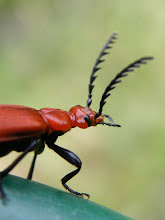
Spring is coming on fast, the farming year is well under way, and our veg patch up at Laurel Farm is in need of attention.
E.B. White wrote, "Just to live in the country is a full-time job. You don't have to do anything. The idle pursuit of making a living is pushed to one side, where it belongs, in favor of living itself, a task of such immediacy, variety, beauty, and excitement that one is powerless to resist its wild embrace."
itself, a task of such immediacy, variety, beauty, and excitement that one is powerless to resist its wild embrace."
E.B. White wrote, "Just to live in the country is a full-time job. You don't have to do anything. The idle pursuit of making a living is pushed to one side, where it belongs, in favor of living
 itself, a task of such immediacy, variety, beauty, and excitement that one is powerless to resist its wild embrace."
itself, a task of such immediacy, variety, beauty, and excitement that one is powerless to resist its wild embrace."A lovely ideal, but unfortunately we do have to engage in the idle pursuit of earning a living – and so the veg patch is in need of attention!
So up to Laurel Farm to do some digging, and to visit the new lamb, surrounded by her Jacob family.
So up to Laurel Farm to do some digging, and to visit the new lamb, surrounded by her Jacob family.
The lamb is a cutey, fiercely protected by her mum, the white cockerel is consumed with lust, running the hens ragged, and the pond is filled with frogspawn – mother nature has reproduction on her mind!

There are many different weeds on our veg patch, plants that particularly like cultivated soil, and as a herbalist I am torn by having to get rid of them, as they are so useful in themselves. So I harvest as many as I can to turn into medicines and mineral-rich wild foods. It’s a delicate balance!
Today we uprooted some dandelions and docks, and I took the roots home to make Dandelion coffee and Dock syrup.+and+Dock+(yellow)+-+roots.JPG)
Today we uprooted some dandelions and docks, and I took the roots home to make Dandelion coffee and Dock syrup.
+and+Dock+(yellow)+-+roots.JPG)
I washed and scraped them, then chopped up the dandelion to roast in the oven, and boiled the dock roots, adding sugar and vinegar, to make an oxymel’.

D took a sip of it and made a most remarkable face, but I love it – bitter and sharp, great for the digestion.
There are bee hives too, at Laurel Farm, and I visited them to tell the bees about Cora, who passed away on Mothers Day. Cora was one of our villages oldest residents – born and spent all her life here, and was much-loved.

Telling the bees is a tradition dating back to Medieval times, where a designated "beespeaker" visited the apiaries to tell the bees about significant events in the lives of the community. It is still thought by some apiarists that when a beekeeper dies someone must inform the hives of her death and introduce them to their new keeper.
"Marriage, birth, or burying,
News across the seas,
All your sad or marrying,
You must tell the bees."
- Celtic Wisdom








No comments:
Post a Comment